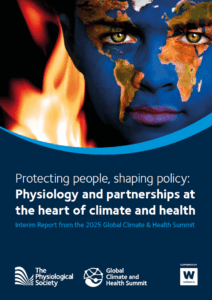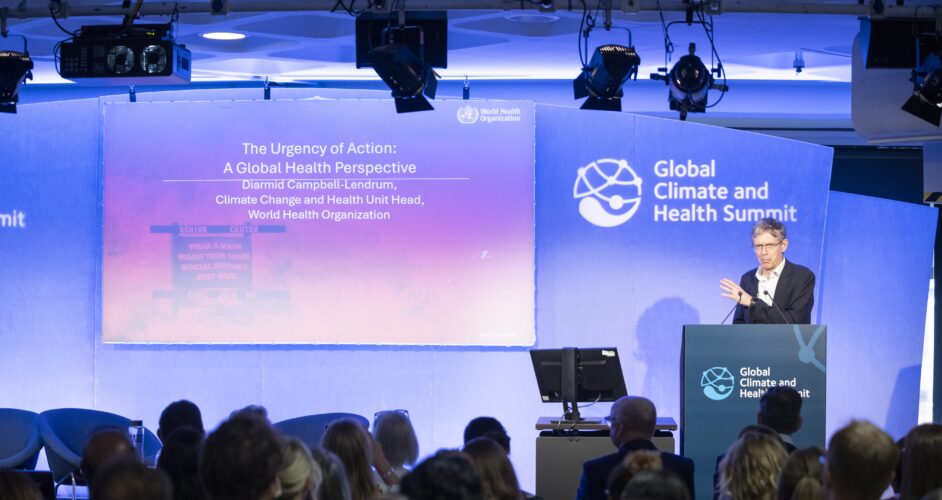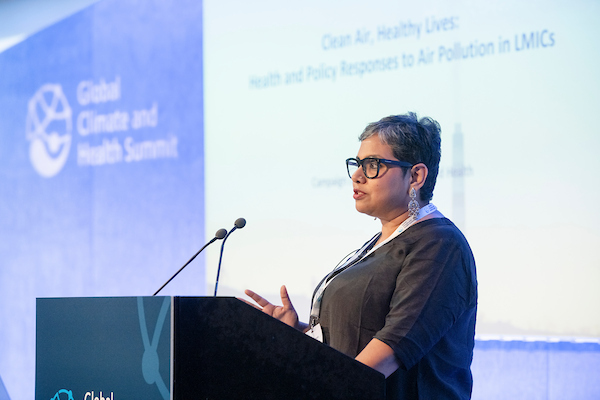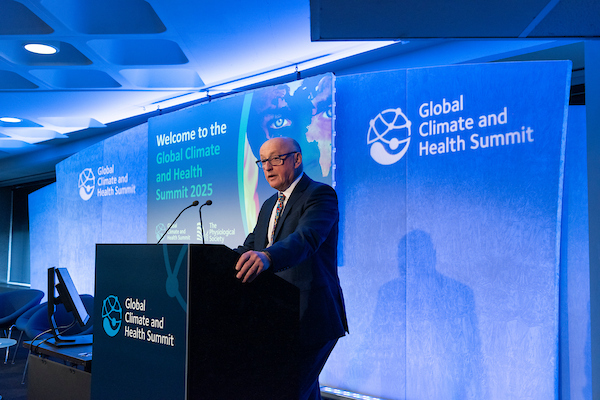Global Climate and Health Summit
Turning physiological science into action on climate and health
The Physiological Society convened the Global Climate and Health Summit in July 2025 to bring together global experts to map where physiology can drive faster, fairer climate action. This page shares the key themes from the Summit, outlines next steps and invites you to get involved in Phase 2 workshops.

Why this matters
Physiology shows how climate stress affects the body and where harm becomes life-threatening. That evidence helps target adaptation now while making the case for the mitigation we need to avoid breaching human limits. The Summit connected scientists, policymakers, practitioners, funders and communities to turn evidence into practical solutions.
The four themes
The four themes set out in the report translate the Summit’s evidence and discussions into a practical framework for action, defining where physiology can inform adaptation, strengthen resilience and shape effective climate and health policy.
1. Engaging people
Strengthen climate-health literacy and communication so people, professionals and communities can act on trusted physiological evidence.
2. Scaling action
Accelerate investment and innovation to grow proven, physiology-informed solutions such as urban cooling, clean cooking and healthier nutrition.
3. Delivering accountability
Use physiological evidence to underpin legal cases, regulation and governance so responsibilities are clear and enforced.
4. Protecting boundaries
Apply physiological thresholds and limits in planning, standards and finance so adaptation is realistic and protection reaches those most at risk.
Get involved in Phase 2 workshops
What is Phase 2
We are running focused workshops and roundtable discussions in October – December 2025 to co-develop specific actions under each theme. Outputs will feed directly into Phase 3: the Roadmap for Action.
Who we are inviting
Researchers, clinicians, professional bodies, public health agencies, standards setters, legal experts, funders, community partners, industry and policy teams.
What we need from you
Your insight into the four themes including practical examples, use cases, data sources and standards gaps.





